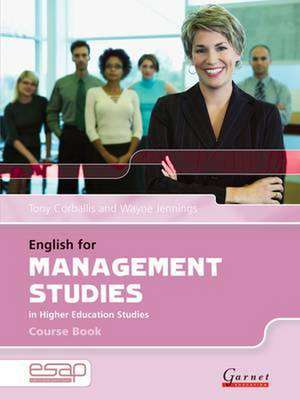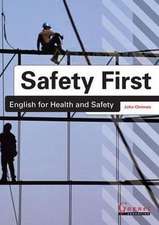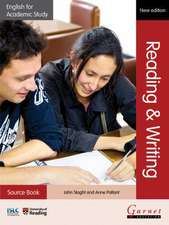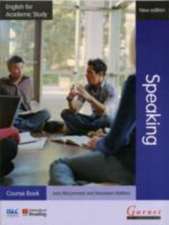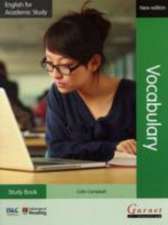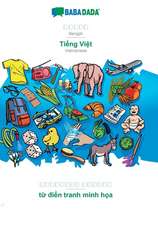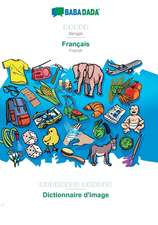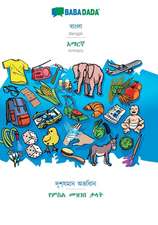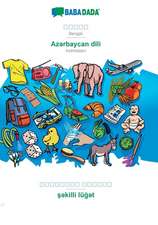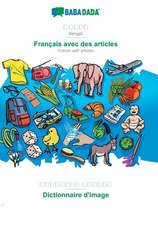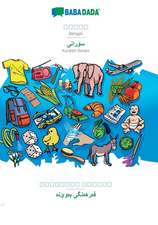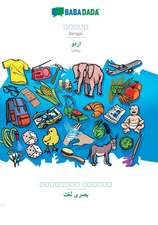English for Management Studies in Higher Education Studies: English for Specific Academic Purposes
Autor Tony Corballis, Wayne Jenningsen Limba Engleză Mixed media product – 31 mar 2009
Preț: 185.56 lei
Nou
Puncte Express: 278
Preț estimativ în valută:
35.51€ • 37.17$ • 29.38£
35.51€ • 37.17$ • 29.38£
Carte disponibilă
Livrare economică 17-31 martie
Livrare express 28 februarie-06 martie pentru 27.06 lei
Preluare comenzi: 021 569.72.76
Specificații
ISBN-13: 9781859644409
ISBN-10: 1859644406
Pagini: 137
Ilustrații: full colour photos, tables and illustrations
Dimensiuni: 210 x 279 x 7 mm
Greutate: 0.44 kg
Ediția:Student ed.
Editura: Garnet Publishing Ltd
Seria English for Specific Academic Purposes
ISBN-10: 1859644406
Pagini: 137
Ilustrații: full colour photos, tables and illustrations
Dimensiuni: 210 x 279 x 7 mm
Greutate: 0.44 kg
Ediția:Student ed.
Editura: Garnet Publishing Ltd
Seria English for Specific Academic Purposes
Notă biografică
Tony Corballis is a business communication and EAP specialist, with broad university and commercial experience. He teaches and lectures on numerous university support and foundation programmes, and an MA course. He has developed a range of courses and commercial-standard materials and books, which have been brought to market internationally. He works at the University of London School of Oriental and African Studies and also runs a small enterprise in communication skills coaching and training, at corballis.com. Tony Corballis is the co-author of English for Specific Academic Purposes: Management Studies with Wayne Jennings. Wayne Jennings has worked in TEFL for over 30 years - in Africa, the Middle East and New Zealand - teaching general, business and academic English, including extensive exam preparation and training for the full Cambridge suite and IELTS. He is also involved in ongoing EAP materials development and course tutorship at Middlesex University. His main commitment is as partner in a consulting enterprise in Russia, where he designs and monitors Business English programmes for a team of teachers at Moscow's Institute: The Higher School of Linguistics. He also designs and delivers training courses for teachers, as an accredited ICELT teacher trainer for Cambridge. He has an MA in Applied Linguistics from Birkbeck College, London. Wayne Jennings is the co-author of English for Specific Academic Purposes: Management Studies with Tony Corballis. Terry Phillips has worked in ELT for more than 35 years as a teacher, teaching supervisor, manager and language school owner. As a consultant, he has worked in more than 20 countries in all parts of the world, advising state and private language institutions on all aspects of school management. For the last ten years, he has been a full time freelance writer with his wife Anna, producing more than 160 published books in ELT. Although he and Anna have worked for all the major publishers, all recent works have been for Garnet Education. Terry is the series editor of the new English for Specific Academic Purposes series for Garnet Education, which aims to prepare students to entry into a particular faculty for English-medium tertiary education. The series recently won the ESU award.
Cuprins
Contents Unit 1: What is leadership? Unit 2: Culture and change Unit 3: Organizations and operations Unit 4: Production management Unit 5: Strategy and the business environment Unit 6: Finance for strategy Unit 7: Budgets, decisions and risk Unit 8: People as a resource Unit 9: Developing people Unit 10: Industrial relations Unit 11: Marketing management Unit 12: Management information systems
Recenzii
"A concise EAP transition course designed specifically for upper-intermediate through advanced students planning to undertake English-medium, undergraduate-level management studies. Having spent many hours looking for the elusive perfect book to help students prepare to undertake English-medium university studies, I was excited to receive a copy of one of Garnet Education's series of subject-specific English for academic purposes (EAP) texts, English for Management Studies. This short text offers a coherent framework of materials for a very specific target market: English-language learners planning to enter a university level English-medium program in management studies on a short (50-80 hour) pre-sessional course. The publisher specifies that the book is appropriate for students who have a minimum of a high intermediate (CEF B2, IELTS 5+) level of English and who have previously completed a general EAP course. English for Management Studies meets its stated goals. In 12 eight-page units dealing with management topics such as leadership, budgeting, developing people, and management information systems, among others, the authors introduce many essential academic survival skills ranging from understanding and taking notes during a lecture, through making effective contributions to a seminar class and writing academic essays and reports integrating correct use of citations and paraphrasing. It does so while introducing key topics and vocabulary entry-level management students are likely to encounter. It does now, however, cover each point extensively. Nor does it provide as much reference and extra practice materials as you might like. According to the publisher, the teacher's book (not shipped for review) does provide 'detailed guidance' on each lesson and 'extra photocopiable resources'. Both are necessary. Teachers with little preparation time and/or limited EAP experience will need some explanation of the purpose and logic behind some of the exercises and are sure to find they need to offer additional information and practice. Most students at a B2 level will also need additional work on grammar and further practice with more general academic vocabulary, such as that offered by McCarthy and O'Dell's Academic Vocabulary in Use (Cambridge, 2008). To complete some of the exercises, students will also need a good advanced learner's dictionary. The text is most suitable for students who fit the publisher's established profile: at a senior high school or university-entry level with solid language skills and a general knowledge of academic English and just beginning management studies. Unfortunately, my students don't quite fit. The graduate students I trialled segments of the text with (not having the audio was a real limitation) were at B2 level but had extensive knowledge of many of the topics. They found some of the exercises useful, if a bit dry. They appreciated the vocabulary and skills banks but, like many EAP students, needed more reference material, more extensive material, more extensive examples, and sample texts closer to those they actually deal with. Graduate level students who already have extensive prior knowledge of management concepts may find the content too simple, and the student's book lacks the support (i.e., answer key and reference appendices) to be readily used for independent study. At just over 100 pages, not including transcripts, and a list price of GBP19.95, it may be a little too concise. Including more reference and practice material to reduce the need for supplementary texts might make the texts more appealing to cash-pressed international students who are unable to purchase not only a core text but also a dictionary and supplementary reference materials. All in all, however, English for Management Studies is sufficiently general and complete to make an excellent core text for the pre-sessional type course it is designed for. By introducing key EAP concepts through thematic skills-based units, it provides a ready-to-use syllabus and, if the teacher's book provides the detail it promises, could be used effectively by even those teachers who have relatively limited EAP experience, preparation time, and/or knowledge of management." Kathryn Sagert for TEFL.net, August 2009 "ESAP: Management Studies is the most recent title in Garnet's ESAP series, which at present consists of eight titles in which Garnet Education have done their best to bring out a specific focus on EAP, hence the amended acronym: ESAP - English for Specific Academic Purposes. The titles of the other books in the series are: English for Environmental Science, English for Banking, English for Business Studies, English for Law, English for Language and Linguistics, English for Tourism and Hospitality and English for Medicine. English for Management Studies is divided into twelve chapters which deal with specific aspects of management studies, e.g., what is leadership?; culture and change; organizations and operations; production management; strategy and the business environment; finance for strategy; budgets, decisions and risk; people as a resource; developing people; industrial relations; marketing management; management information systems. Odd-numbered units deal with the topics via the semi-integrated framework of listening and speaking, whereas even-numbered units do so through a focus on reading and writing. Vocabulary work is an integral part of each unit, and is aided by vocabulary and skills 'banks' ('a reference resource to provide students with revision of the key words and phrases and skills presented in the unit'). The professional slant of the specialism is covered exceptionally well in individual units. For example, Unit 9 handles the minutiae of 'Developing people'. The listening task on page 72 requires the student to take notes in order to fill in the missing parts of a part of a lecture which deals with the topic in question. The skeletal notes feed in key concepts such as Maslow's hierarchy of needs (the 'needs' is in fact gapped), McGregor's Theory X and Theory Y or 'hygiene factors'. EAP/ESP teachers who may be new to this topic area are given detailed guidance in the Teacher's Book: page 153 contains a key for the listening exercise, with suggested model answers and methodological guidance. There is also a full verbatim transcript of that section of the lecture. The Course Book is attractively laid out with the full use of colour (this was not standard practice previously in traditional EAP or ESP course books), which makes it appealing to the user. English for Management Studies is an excellent ESAP publication which can be used with pre-sessional, insessional, foundation and bridging international students who wish to study the subject at an English-speaking university. The book is also very useful for a general EAP teacher who is interested in management studies and may consider this sub-area as their future specialism in EAP teaching." Mark Krzanowski for the Journal of the IATEFL SIG, Issue 34, October 2009 The introduction in the teacher's book to English for Management Studies states that 'English for Management Studies is designed for students who plan to take a management studies course entirely or partly in English. The principal aim... is to teach students to cope with input texts, i.e., listening and reading, in the discipline.' The introduction also states that 'The aim of the titles in the ESAP series is to prepare students for academic study in a particular discipline.' This textbook serves a number of functions. It is primarily a text seeking to introduce students to a number of key concepts in the discipline of Management studies. Each unit focuses on a specific issue such as: what is leadership; production management; budgets, decisions and risks; marketing management. These topics are presented through simulated lectures (delivered in a variety of native-speaker accents) and readings. As well as introducing discipline specific topics, the book also focuses on a number of key EAP skills over the four skill areas. These skills are summarised at the end of each unit in a brief 'Skills Bank' and cover such topics as: signposting in a lecture; types of academic essay; writing a bibliography and introductions and conclusions. These skill areas have been presented and practised in the relevant unit but really only serve as an introduction and would need to be developed by the student at a later stage. Having said that, as the stated aim of the series is 'to prepare students for academic study...' then the book works within its remit. So who is this book aimed at? Students with a IELTS level 5 who are planning to take an undergraduate degree in Business Studies. This book would be ideal for a short summer course where the EAP skills might be supplemented and expanded. It is a very useful and accessible introduction to core concepts of a basic Business Studies course. At 275 pages the teacher's book is twice the length of the coursebook and gives suggestions for how each activity in each lesson should be presented. While this is useful for teachers new to the profession, more experienced teachers will find their own way around the material and thus be unlikely to slavishly follow the suggested path. However, for a teacher in a hurry who hasn't got the time or inclination to work out answers for themselves, the teacher's book serves admirably as a quick reference. Rob Stuart for baleap.org.uk
